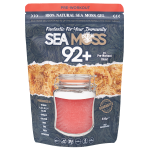MOTOR NEURON DISEASE
MOTOR NEURON DISEASE

Motor Neuron Disease (MND), also known as amyotrophic lateral sclerosis (ALS), is a neurological disorder that affects nerve cells responsible for muscle movement.
The exact causes of MND are still under study, but it is believed to involve a combination of genetic and environmental factors. The disease leads to muscle weakness, loss of body mass, and eventually paralysis.
Symptoms include pain, muscle cramps, joint stiffness, difficulty swallowing and breathing, and depression. There is currently no cure for MND, but medications can help alleviate symptoms.
Natural treatments such as aromatherapy, massage, and relaxation techniques can improve quality of life. Certain foods, herbs, and vitamins like ginger, vitamin B12, and zinc may provide beneficial effects. MND affects the brain, spinal cord, muscles, nerves, and tendons, causing deterioration and functional impairments.
Description
Motor Neuron Disease (MND) refers to a group of progressive neurological disorders that primarily affect the nerve cells (motor neurons) responsible for controlling voluntary muscle movements. These motor neurons gradually degenerate and eventually die, leading to muscle weakness, loss of coordination, and difficulty speaking, swallowing, and breathing.
Research is still ongoing to understand the exact causes of MND. However, it is believed that a combination of genetic and environmental factors contributes to its development. MND can affect people of all ages, although it commonly manifests in adults over the age of 40.
Different types of MND include Amyotrophic Lateral Sclerosis (ALS), Primary Lateral Sclerosis (PLS), and Progressive Muscular Atrophy (PMA). While there is currently no known cure for MND, various treatments and therapies aim to manage symptoms, improve quality of life, and provide support for individuals and their caregivers.
The symptoms of motor neuron diseases can vary depending on the specific condition and the stage of the disease. Common symptoms associated with various motor neuron diseases include:
- Muscle Weakness: Gradual muscle weakness, typically starting in one area of the body and spreading to others. This can lead to difficulty with activities like walking, climbing stairs, or lifting objects.
- Muscle Wasting (Atrophy): Muscle atrophy or wasting is the shrinking or thinning of muscles, which occurs as a result of motor neuron damage.
- Muscle Twitching (Fasciculations): Involuntary muscle twitching or fasciculations, often noticed under the skin, can be a common early sign.
- Difficulty with Fine Motor Skills: Loss of dexterity and fine motor control, making it challenging to perform tasks that require precise hand or finger movements.
- Spasticity: Some motor neuron diseases can cause muscle stiffness or spasticity, leading to muscle tightness and reduced flexibility.
- Cramps: Muscle cramps or spasms may occur, causing discomfort and pain.
- Dysphagia (Difficulty Swallowing): Difficulty swallowing, which can result in choking or aspiration.
- Dysarthria (Speech Difficulty): Impaired speech due to muscle weakness in the tongue, lips, and throat.
- Breathing Difficulties: Progressive weakness of respiratory muscles can lead to breathing problems, potentially requiring respiratory support.
- Fatigue: Generalised fatigue and weakness due to muscle involvement.
- Depression: Coping with a chronic and progressive condition can lead to emotional distress, including symptoms of depression.
The main types of motor neuron disease include:
- Amyotrophic Lateral Sclerosis (ALS): ALS is the most common and well-known form of motor neuron disease. It affects both upper motor neurons (located in the brain) and lower motor neurons (located in the brainstem and spinal cord). ALS causes progressive muscle weakness, muscle wasting, and eventually leads to difficulty in speaking, swallowing, and breathing. There are different forms of ALS, including sporadic (occurring without a known cause) and familial (inherited).
- Progressive Bulbar Palsy (PBP): PBP is a subtype of ALS that primarily affects the bulbar region, which includes the muscles controlling speech, swallowing, and facial expressions. People with PBP may have difficulty speaking and swallowing early in the disease course.
- Progressive Muscular Atrophy (PMA): PMA is a type of motor neuron disease that primarily affects the lower motor neurons. It leads to progressive muscle weakness and wasting without significant involvement of the upper motor neurons.
- Primary Lateral Sclerosis (PLS): PLS is a rare form of motor neuron disease that mainly affects the upper motor neurons. It results in progressive stiffness, spasticity, and weakness in the limbs without significant lower motor neuron involvement.
- Hereditary Spastic Paraplegia (HSP): Although HSP is technically a separate condition, it shares some similarities with motor neuron disease. It is a genetic disorder that primarily affects the upper motor neurons, causing spasticity and weakness, particularly in the legs.
- Spinal Muscular Atrophy (SMA): SMA is a genetic disorder that affects the lower motor neurons and leads to progressive muscle weakness and atrophy. SMA can vary widely in its severity, and it is classified into several types based on age of onset and symptoms.
- Polio syndrome: Polio syndrome, also known as post-polio syndrome (PPS), is a condition that affects individuals who had previously contracted and recovered from poliomyelitis (polio) infection. Polio is a viral disease caused by the poliovirus and can lead to paralysis or weakness of muscles due to damage to the motor neurons in the spinal cord and brainstem.
The causes of motor neuron diseases are not fully understood, and they can vary depending on the specific disease subtype. Some of the factors that have been associated with the development of motor neuron diseases include:
- Genetics: Inherited genetic mutations are a significant factor in many motor neuron diseases. Mutations in specific genes can increase the risk of developing these conditions. For example, mutations in the SOD1, C9orf72, and FUS genes are associated with amyotrophic lateral sclerosis (ALS).
- Environmental Factors: While genetic factors play a substantial role, environmental factors may also contribute to the development or progression of motor neuron diseases. Exposure to certain toxins or chemicals has been studied as potential risk factors.
- Oxidative Stress: Oxidative stress occurs when there is an imbalance between the production of harmful free radicals and the body's ability to neutralise them. It is believed to play a role in the degeneration of motor neurons in diseases like ALS.
- Inflammation: Inflammation in the nervous system may contribute to the damage of motor neurons. Chronic neuroinflammation has been observed in some motor neuron diseases.
- Viral Infections: Viral infections have been proposed as potential triggers for motor neuron diseases. However, the exact relationship between viral infections and these conditions is still under investigation.
- Abnormal Proteins: Accumulation of abnormal proteins, such as TDP-43 or FUS, in motor neurons is a hallmark of certain motor neuron diseases. These protein aggregates may disrupt normal cellular processes.
- Mitochondrial Dysfunction: Mitochondria are the energy-producing structures in cells. Dysfunction of mitochondria can lead to increased oxidative stress and may be involved in the degeneration of motor neurons.
Motor neuron diseases are a group of progressive neurological disorders for which there is currently no cure. Treatment primarily focuses on managing symptoms, improving quality of life, and providing supportive care. While there is no medication that can reverse the course of the disease, several medications may be prescribed to alleviate specific symptoms and complications associated with motor neuron diseases. These medications can include:
- Riluzole: Riluzole is commonly used in the treatment of amyotrophic lateral sclerosis (ALS). It may help slow down the progression of the disease and improve survival by reducing glutamate levels in the brain.
- Baclofen: Baclofen is a muscle relaxant that can help manage muscle spasticity and cramps, which are common symptoms in motor neuron diseases.
- Phenytoin: Phenytoin is an antiepileptic drug that may be used to control muscle twitching or fasciculations in some cases.
- Quinine: Quinine may be prescribed for muscle cramps and spasticity.
- Glycopyrrolate: This medication can help manage excessive saliva production (drooling) in some individuals with motor neuron diseases.
- Amitriptyline: Amitriptyline is a tricyclic antidepressant that may be used to manage pain and improve sleep in some cases.
- Fluvoxamine: Fluvoxamine is a selective serotonin reuptake inhibitor (SSRI) that may be prescribed to manage mood disturbances or obsessive-compulsive symptoms that can occur in motor neuron diseases.
- Dextromethorphan: Dextromethorphan is an over-the-counter cough suppressant that may be used to manage pseudobulbar affect (inappropriate emotional responses) in some individuals.
While there is no cure for motor neuron diseases, individuals with these conditions can explore various natural and complementary therapies to help improve their quality of life and manage symptoms. These natural approaches can be used alongside conventional medical treatments and should be discussed with healthcare providers for personalised recommendations. Here are some natural remedies and strategies that may be considered:
- Aromatherapy: Aromatherapy involves using essential oils to promote relaxation and alleviate stress. Certain scents, such as lavender or chamomile, may help with relaxation and emotional well-being.
- Massage: Massage therapy can help reduce muscle tension, improve circulation, and provide relaxation. It may be particularly beneficial for managing muscle stiffness and discomfort.
- Relaxation Techniques: Practising relaxation techniques like deep breathing, meditation, and progressive muscle relaxation can help reduce stress, anxiety, and muscle tension.
- Warm Clothes and Heat Pads: Staying warm and using heat pads or warm compresses can help alleviate muscle stiffness and provide comfort, especially in cold weather.
- Avoid Overexertion: It's essential to conserve energy and avoid overexertion. Pacing oneself and taking regular breaks can help manage fatigue and prevent worsening of symptoms.
- Assistive Devices: Depending on the level of disability, individuals may benefit from using assistive devices such as wheelchairs, mobility aids, communication devices, or adaptive tools to maintain independence and quality of life.
- Good Sleep Habits: Prioritising good sleep hygiene can improve the quality of sleep and overall well-being. Creating a comfortable sleep environment and sticking to a regular sleep schedule are essential.
- Physical Therapy: Physical therapy can help individuals with motor neuron diseases maintain mobility, improve muscle strength, and manage joint stiffness. A physical therapist can create a customised exercise program.
- Antioxidant-Rich Diet: Consuming a diet rich in antioxidants, including fruits and vegetables, may help protect nerve cells from oxidative stress. Omega-3 fatty acids found in fatty fish can also have anti-inflammatory properties.












